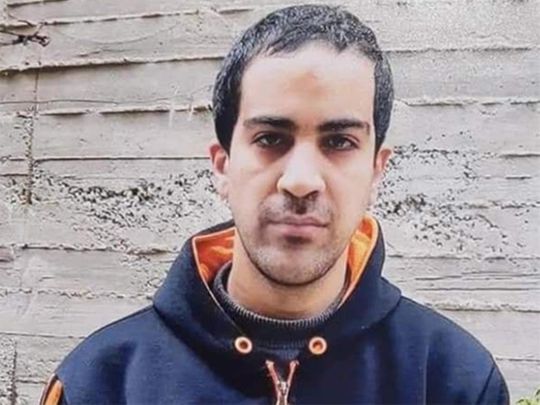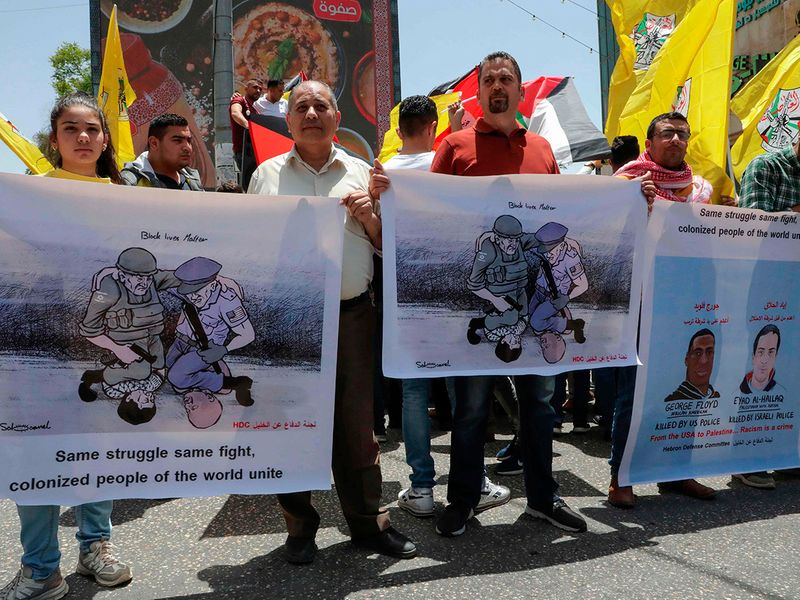
Occupied Jerusalem: More than a week after Israeli police shot dead an unarmed and autistic Palestinian in Jerusalem, Prime Minister Benjamin Netanyahu on Sunday called the killing a tragedy and offered his condolences to the family.
Iyad Hallaq, the 32-year-old unarmed Palestinian shot and killed by Israeli police on Saturday, May 30, in Occupied Jerusalem's Old City, was laid to rest Sunday overnight in his East Jerusalem neighborhood.
“He didn’t even know there was such a thing as Jews and Arabs in this country,” said Hallaq's cousin Dr Hatem Awiwi to media.

Hallaq was diagnosed as being on the low-functioning end of the autism spectrum as a child, and he had trouble communicating with those around him.
“He didn’t absorb things. He didn’t know what a soldier is or what a weapon is. He saw a stranger and fled, and then they shot him.” Awiwi said.
He died after after being shot twice in the chest, an autopsy report revealed. The police internal affairs division is investigating the shooting.
Warda Abu Hadid, Halak’s caregiver, told Israeli media she had tried to alert police to the fact that he was severely autistic and did not understand their calls.
“He’s disabled, disabled,” she recalled shouting repeatedly, in Hebrew. “Wait a moment, take his ID card, check his ID.”
“Suddenly they fired three bullets at him, in front of my eyes,” she told Channel 13. “I shouted: ‘Don’t shoot him.’ They didn’t listen; they didn’t want to hear.”
Palestinian lives matter
At small protests in Israel and Palestine since last Saturday, people held signs reading “Palestinian lives matter”, a reference to the US-based Black Lives Matter movement.
"What happened to Iyad Al Halaq is a tragedy. This was a man with disabilities, autism, who was suspected - and we (now) know wrongly - of being a terrorist in a very sensitive venue," Netanyahu said in comments that stopped short of an apology.
The Ramallah-based Palestine Institute for Public Diplomacy shared a drawing on Twitter of Halak and Floyd side by side, with “two countries, similar systems” written above them. “[Iyad] and George were victims of similar systems of supremacy and oppression. They must be dismantled,” the advocacy group said.
Every day for the past six years, Hallaq had walked from his home in the Wadi Joz neighborhood to a rehabilitation center in the Old City called Elwyn center.
“He didn’t know how to defend himself,” added Issam Jamal, who runs the Elwyn center in the Old City. “He wasn’t capable of it. And they didn’t let him; they didn’t listen to him.”
“This is a great tragedy, a great loss,” he added. “He had started to be independently mobile. He had started to gain employment skills. He was making good progress and had reached an advanced stage.”
Hundreds of people attended Halaq's funeral a week ago.
Palestinian officials and Halaq's family said he suffered from severe autism and panicked and ran after the officers confronted him.
"I know that (police) are conducting examinations. We all share in the grief of the family," Netanyahu said in public remarks to his cabinet.
Addressing Internal Security Minister Amir Ohana, who is responsible for police, at the cabinet meeting, Netanyahu said: "I expect your full investigation into this matter." A police spokesman could not immediately be reached on Sunday to provide information on whether any action had been taken so far against the officers.
At last week's cabinet session, Defence Minister Benny Gantz, Netanyahu's centrist partner in Israel's new unity government, publicly apologised for Halaq's death. The right-wing Netanyahu, sitting next to him, kept silent at the time.








